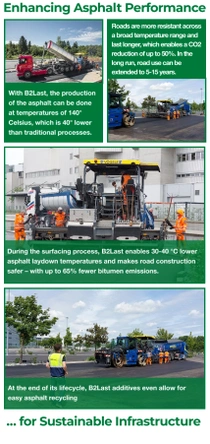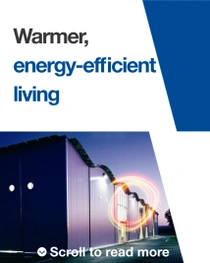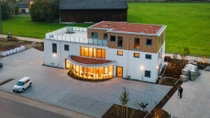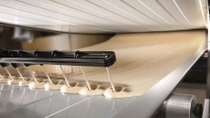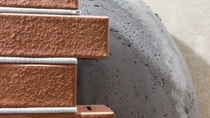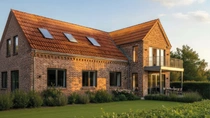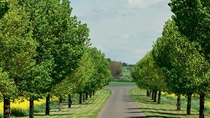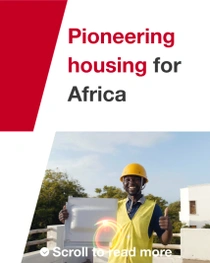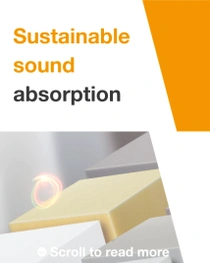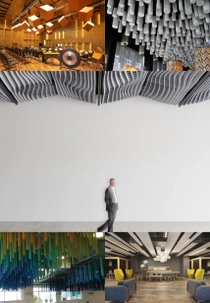We create change
Building for the future
Where and how we live are some of the most important questions for a growing population. BASF is actively addressing these challenges by developing more durable construction materials that simplify building and maintenance. Our innovations are helping the construction industry to be more energy efficient and better protect our environment.
Increasingly heavy traffic, seemingly endless construction sites, and extreme weather conditions are taking a toll on our roads. BASF’s sustainable product for the asphalt industry, B2Last®, is offering a solution by changing how roads are built.
This new bitumen additive is designed to make road surfaces more durable and last longer. It reduces the overall carbon footprint throughout the asphalt manufacturing and road-building process. It can be applied at lower temperatures, which also reduces the emissions released, making construction sites safer and more environmentally friendly.
Does your home still feel chilly despite having the heating on? Keeping a home warm and dry without increasing electricity costs is a challenge. That's where future-proof construction comes in.
Building insulation not only keeps your home cozy but also helps reduce your carbon footprint and contribute to climate protection. Innovative solutions from BASF like Elastopir® and Elastopor® are high-performance, polyurethane-based insulation products. They can be tailored to any building size, location, environment or climate.
Look at these very specific examples of how to make a city a pleasant place to live
High energy-efficiency can be reached with even thin layers of insulation, ensuring that even the smallest buildings meet official safety and energy standards.
Imagine a future where a home not only withstands harsh weather conditions and builds resilience to climate change, but also contributes positively to the environment. This is the vision that Takazuri is pursuing in Eastern Africa, where they are partnering with BASF to create smart building solutions that prioritize climate resilience and community involvement.
Takazuri’s Climatile™ roofing and cladding system incorporates locally sourced and processed post-consumer waste. Compared to standard metal roofs, Climatile’s superior insulation and solar reflection properties keep roofs and walls cooler and enhance indoor temperatures. It also offers a safe rainwater-harvesting surface without corrosion.
To protect the system against the region's challenging weather conditions, BASF has provided specialized additives that enable Climatile™ to withstand long-term outdoor exposure making it an affordable and effective solution.
The collaboration includes projects from homes, schools, healthcare, humanitarian aid, as well as commercial and industrial buildings. But the initiative is not just about building sustainable construction, it's about fostering sustainable communities.




